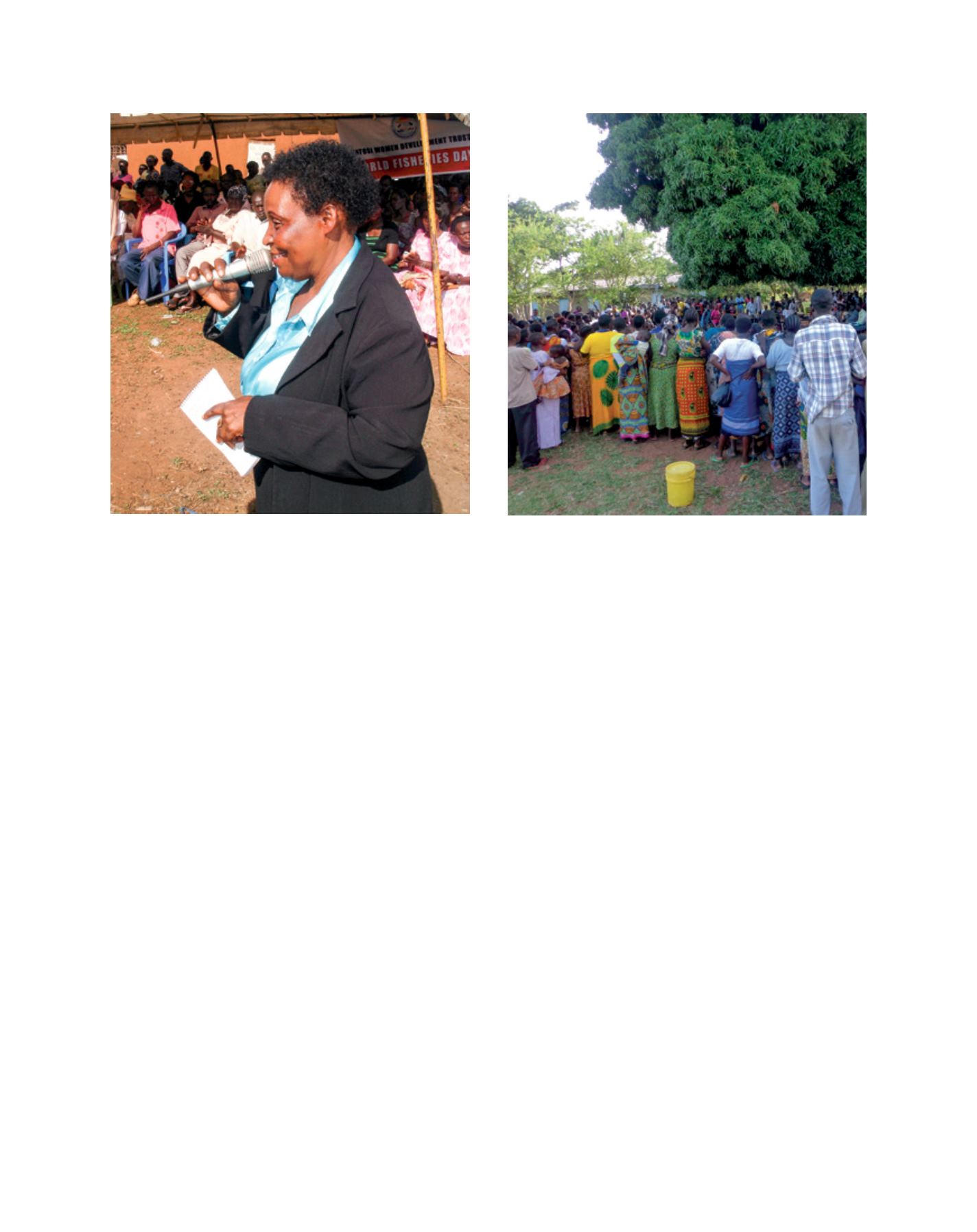

[
] 189
activities. However, most of the families in fishing communi-
ties that provide the cheapest labour to the fishing companies
cannot afford fish anymore, nor can that they sustain their
livelihoods through fishing as it used to be. One wonders who
should be the direct beneficiary of fisheries resources.
FAO has identified a number of factors that are key for the
successful development of family farming, such as agroecologi-
cal conditions and territorial characteristics; policy environment;
access to markets; access to land and natural resources; access
to technology and extension services; access to finance; demo-
graphic, economic and sociocultural conditions; and the
availability of specialized education, among others. Access to
land and natural resources, as well as a conducive policy envi-
ronment, are evidently crucial to promote family fisheries so as
to support the food security and well-being of the communities.
In Uganda, the substantive law that currently provides for
the regulation of the fisheries is the Fish Act 1964 (Cap. 228).
The Act is now considered inadequate to cope with the current
domestic and international changes in fisheries administration
and the latest policy direction and focus. By current standards
it is neither comprehensive nor flexible enough to provide for
the proper management and conservation of the fisheries.
2
The Local Government Act of 1997 also mandates districts
to manage their lakes or waters, within their areas of juris-
diction. Essentially, local governments are granted powers
for effective governance. They are also mandated to enact
appropriate district fisheries ordinances and enforce these as
well. However, experience shows that the current large-scale
land purchases and acquisitions are beyond the capacity of
the local government to address sufficiently. So there is also a
need to revisit the Act, and other fisheries laws and policies,
to incorporate emerging issues and concerns in the sector.
The prevailing worldwide uncontrolled acquisition of land
by private investors denies the families their access rights
to the lake, which for them is the source of fish for food,
water, employment and income in general. Unfortunately, the
pressure to acquire/buy certain parts of the lake by commer-
cial fisheries has made those parts inaccessible for the local
communities. Making parts of the coasts/lake inaccessible and
confining local people to one particular part not only dimin-
ishes their catch, but also threatens their livelihoods. The
prevailing tendency to privatize water bodies under the guise
of improved governance of fisheries, especially for small-scale
fisheries, has jeopardized the rights of the fishers and threat-
ens family fishing.
The limited information – if any – among families on the
existing land laws and regulations governing the use of land
and water resources in the community, not to mention the
international instruments where they exist, is written in the
official language, English. This is usually a second language
for the families, and the majority of the local people who are
affected by these measures are unable to read and interpret or
understand the information. Communities engaged in family
fishing are therefore ignorant of the very laws and policies that
are meant to protect them.
There is clearly a lack of involvement of the local commu-
nities/families in the decisions that directly affect their lives.
It is evident that fisher communities have not been involved
in many of the decisions regarding use and access to the lake
where they live and on which their lives directly depend.
Interventions to address prevailing issues are required at all
levels, with concerted efforts to work together even between
sectors such as farmers, fishers, pastoralists and other food
producing sectors.
A Deputy District Speaker responds to issues raised during the community
dialogue to address arising fisheries management issues in Mukono
Community sensitization on sustainable fisheries through public meeting in
Ukerewe Island Tanzania
Image: KWDT
Image: EMEDO
D
eep
R
oots
















